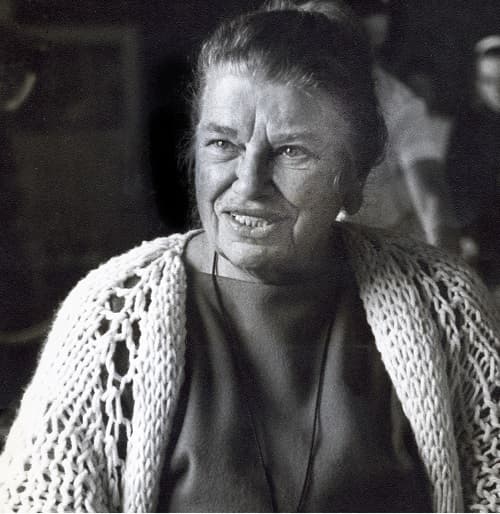
Adulthood: Bearing Fruit
Adulthood: Issue Four
When a plant grows to maturity, it bears fruit. This comes naturally. In the human situation too, bearing good fruit is not just something we adults are supposed to do, even less something we do only for others. It is something we want to do. We see this in the joy of a mother and father when a child is born and in the satisfaction we feel when we give life to those in need: the hungry, the thirsty, the stranger, the naked, the sick, the lonely, the depressed, the addicted. We see it in the faces of the saints; in the face of a woman like Catherine Doherty. The law of charity is inscribed in our very being.
The present issue of Humanum looks at this principle as it plays out in the lives of a variety of individuals and groups. The seven recently beatified monks who gave hope, friendship, medical aid to—and ultimately their lives for—their Muslim brothers in Algeria; Madonna House, a lay community serving the poor in Combermere, Canada and across the world; an order of nuns in New York City who offer aid to unwed mothers; a new and thriving university movement giving life to students searching for a reason to live. We hear the witness of a young priest in charge of two rural parishes, on how fatherhood is the fruit of his service to his flock. We also profile a missionary family in Central America, witnessing to the goodness of married life, and a group of families in rural England living a form of the “Benedict Option” for the sake of their own children, as well as the many others they welcome into their homes. Finally, we look at one of the most notable Chinese Christian laymen of the 20th century, the jurist and diplomat John Wu.
In each case the fruitfulness is irrepressible. It is an urge. “The love of Christ urges us” (2 Cor 5: 14). As Catherine Doherty put it in her instruction to the maturing Madonna House communities: “Love is not an abstract thing… Love is a fire. It must spend itself. It must spend itself in service.” Many people in our time ask what can truly give us happiness or personal fulfillment. It is this urge to reach out to the other, which is surely the mark of the fully mature human being: it springs forth in a life drawn from the center where the person is rooted. It is the love of Christ (for us) that urges us to reach out towards the “peripheries.” This couldn’t be more evident than in the lives of those presented in this issue: each of whom is as much planted in the center as they are actively moving out. This is why missionary fruitfulness is so much more humanly satisfying for both giver and receiver—compared to mere humanitarianism, as our review of a book about the great Dr. Paul Farmer and his notable medical work in Haiti points out. For “man cannot live by bread alone.”
This is why Catherine Doherty is so central to our fourth issue on adulthood. A Russian émigrée, who rubbed elbows with Thomas Merton in New York at Friendship House, Catherine Doherty wanted to serve the poor. But it wasn’t until she discovered the “poustinik way of life”—a common life rooted in God’s charity for us (through solitary prayer, as well as fasting and the sacraments) that she fulfilled the full depth of her desire. She had to immerse herself in the depth of human poverty—the deepest human need—before she could really serve the poor. Doherty embodies the loving, humble service of which a truly mature human being is capable: rooted in what is central, and thereby empowered to reach out to the peripheries in the deepest way.
Léonie Caldecott is the UK editor of both Humanum and Magnificat. With her late husband Stratford she founded the Center for Faith and Culture in Oxford, its summer school and its journal Second Spring. Her eldest daughter Teresa, along with other colleagues, now work with her to take Strat’s contribution forward into the future.
Margaret Harper McCarthy is an Assistant Professor of Theology at the John Paul II Institute and the US editor for Humanum. She is married and a mother of three.
Posted on March 5, 2020